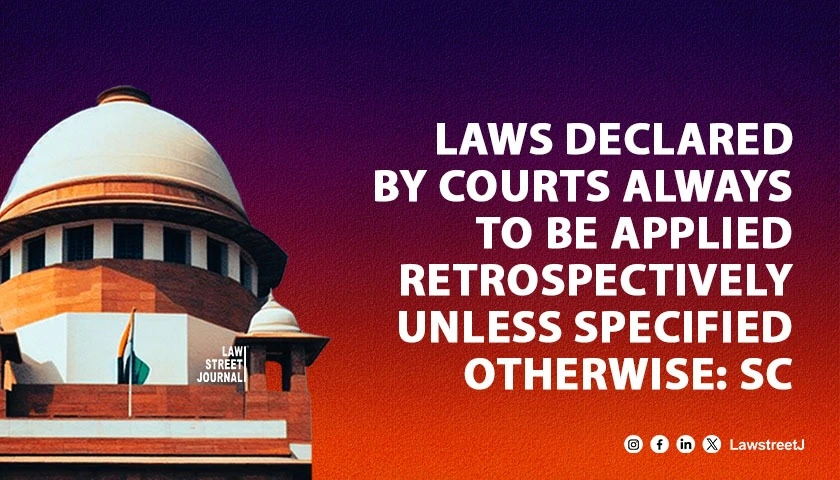NEW DELHI: The Supreme Court on Thursday said laws declared by the constitutional courts through their judgements are always retrospective, while the laws made by Legislature are always prospective, unless specified otherwise.
A bench of Justices Sudhanshu Dhulia and Ahsanuddin Amanullah, however, concurred with the Calcutta High Court's view that the Supreme Court's judgment on mandatory filing of affidavit with a private complaint under Section 156(3) CrPC would apply prospectively.
The court dismissed an appeal filed by Kanishk Sinha and his wife against the Calcutta High Court's judgment which held the 2015 judgment in the case of Priyanka Srivastava Vs State of Uttar Pradesh would apply prospectively.
The 2015 judgment mandated all the private complaints filed under Section 156(3) of the Criminal Procedure Code for lodging the FIR must be accompanied by the affidavit by the complainant.
The bench said this court was then seized with an issue where frivolous complaints were being filed before the Magistrate only to harass people.
The bench pointed out, therefore, in order to check this trend, it was directed that all applications before the Court where Section 156(3) CrPC applications are made must be supported by an affidavit duly sworn by the applicant who seeks to invoke the jurisdiction of the Magistrate.
"Such a step could only be prospective in nature, and this is clearly reflected from the very language used by the judges in the judgment," the bench said.
The court also said it is necessary to mark the words in the para 30 of the 2015 judgment when the bench had said, "... a stage has come in this country…”, indicating that the directions could only be prospective.
"This would signify that what the court intended was that from now onward it would be necessary that an application would be accompanied by an affidavit," the bench said.
With regard to applicability, the court said a law made by the legislature is always prospective in nature unless it has been specifically stated in the statute itself about its retrospective operation, the reverse is true for the law which is laid down by a constitutional court, or law as it is interpreted by the court.
However, the judgment of the court will always be retrospective in nature unless the judgment itself specifically states that the judgment will operate prospectively, the court said.
"The prospective operation of a judgment is normally done to avoid any unnecessary burden to persons or to avoid undue hardships to those who had bona fidely done something with the understanding of the law as it existed at the relevant point of time. Further, it is done not to unsettle something which has long been settled, as that would cause injustice to many," the court said.

















